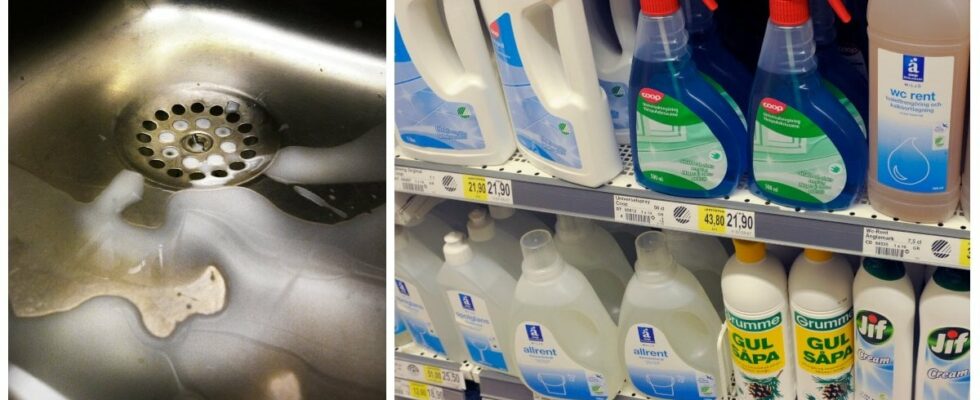Getting stuck in the sink can be troublesome but has so far been a fairly easy problem to solve. The vast majority of people usually go to the local grocery store and buy a bottle of clogging solution, which they then pour into the sink to clear the pipes.
As of January 1, it will stop, according to a decision from the Chemicals Inspectorate.
READ MORE: The deposit is increased on cans and bottles
Using cork solution is not completely risk-free, something that the authority testifies to.
– Strongly caustic corkscrews can cause serious caustic damage in the mouth and esophagus, in the eyes and on the skin. Even small amounts can cause life-threatening injuries. According to the Poisons Information Centre, accidents with corrosive corkscrews have increased and often children are the ones who get hurt, says David Isakssonpress officer at the Chemicals Inspectorate to News24.
Like the vast majority of strongly corrosive chemical products, clog removers also do no wonders for the environment.
DON’T MISS: New for 2025: Change in the Swedish calendar
2025: A permit is now required for corkscrews
Because of this, anyone who wants to buy and use a clog remover must obtain permission from the county administrative board.
“Private persons as of 1 January 2025 must have permission from the county administrative board to be allowed to buy and use products intended for the cleaning or cleaning of sewers,” writes the Chemicals Inspectorate on its homepage.
Those who want to buy corkscrews must therefore present their permit in store to be allowed to buy. The store, in turn, must keep records of who bought corkscrews and in what quantity.
– Stores must keep records of sales and ensure that products are stored so that unauthorized persons cannot access them, for example locked up or behind the sales counter.
DON’T MISS: New ban introduced on 20 January – affects these packages
Can issue fines: “Case by case”
Only the cork dissolvers that contain sodium or potassium hydroxide in such a content that they are classified in the danger class Corrosive to the skin in danger category 1A, are covered by the ban. Unfortunately, this is the majority of corkscrews available on the Swedish market.
– It is best to use other safer alternatives to prevent and solve blockages in the sewers, says Isaksson at the Chemicals Inspectorate, to Nyheter24.
READ MORE: Many ignore this law – can result in fines
Isaksson says that if a private person were to manage to get hold of a corkscrew of the type that is prohibited, a fine awaits.
– It could lead to fines and ultimately imprisonment. How high the fine will be is determined on a case-by-case basis.
DON’T MISS: Latest news – take part in what’s happening right now
